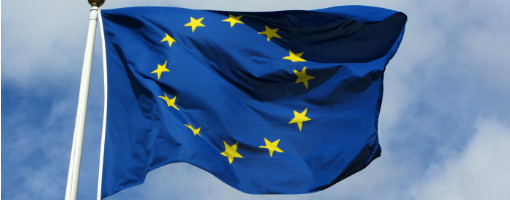The value of Dutch pension funds' investments fell by a total of €54bn (-3 per cent) in the first quarter of 2025 due to exchange rate changes, according to De Nederlandsche Bank (DNB).
The figures showed that Dutch pension funds managed a total of €1771bn in assets at the end of the first quarter of 2025, with about €808bn held in currencies other than the euro, including investments in US dollars that are worth €551bn.
The investments in dollars do not only concern investments in the United States (€450bn) but also in other countries (€101bn).
Although Dutch pension funds invest a large part of their assets under management in currencies other than the euro, their liabilities are in euros as pensions are paid in euros.
As the dollar and various other currencies depreciated against the euro in the first quarter of 2025, the value of these investments converted to euros decreased.
This currency effect was largest for the US dollar, where losses due to exchange rate changes amounted to €24bn (-4 per cent).
In other currencies, the losses due to the currency risk amounted to €3bn (-1 per cent).
The DNB's data also showed losses due to falling stock prices of €11bn on all investments in foreign currencies (-1.3 per cent) and €16bn on investments in euros (-1.7 per cent).
Following the first quarter, the decline in the US dollar continued, with a further approximately -4.9 per cent at the end of May 2025, a currency impact of approximately €-27bn.
Despite ongoing weakness in the US dollar, the figures showed that stock prices recovered, with the leading S&P index rising by 5.3 per cent.
Bond prices, however, declined, and the net gain on US dollar investments from market price movements is estimated at about €14bn.
To manage foreign exchange risk, pension funds employ derivatives, financial products designed to move in the opposite direction to exchange rates.
In the first quarter of 2025, pension funds recorded a profit of €11bn on these derivatives, offsetting about 40 per cent of the currency loss.
However, pension funds do not hedge their full currency risk, partly because there are costs associated with these derivatives. For example, derivatives must be countered by shielded accounts as collateral. This money cannot be invested.
Given this, pension funds mainly hedge the currency risk on investments in fixed-income securities, such as bonds. They do not hedge investments in shares.
DNB said the reason for this is that stock prices and the dollar often move in opposite directions. For example, when stock prices go up, the dollar often goes down, and vice versa.
This opposite relationship limits the total risk that pension funds run on these investments. Over the past five years, this balancing effect has offset about 40 per cent of the currency risk.
This occurs because both stock prices and the dollar exchange rate usually respond in opposite ways to changes in interest rates.
When interest rates go up, investors tend to move their money into the US to buy government bonds, which strengthens the dollar. But higher interest rates also tend to push down the prices of both stocks and bonds.
DNB explained that due to this, it was “striking” that in the first quarter of 2025, both stock prices and the US dollar fell, which it credited partly due to uncertainties surrounding the policy of the new US administration.
Latest News
-
More than one million Dutch retirees given pension increase since transition
-
I&P Denmark restructures following pensions director departure
-
Just Group underlying operating profit falls by 39%
-
News in brief: 27 February 2026
-
Sweden's AP3 reports 'record high' fund capital of SEK 577.1bn in 2025
-
NBIM ‘aiming to be a leader’ in managing climate change risks and opportunities
Podcast: Stepping up to the challenge

In the latest European Pensions podcast, Natalie Tuck talks to PensionsEurope chair, Jerry Moriarty, about his new role and the European pension policy agenda
Podcast: The benefits of private equity in pension fund portfolios

The outbreak of the Covid-19 pandemic, in which stock markets have seen increased volatility, combined with global low interest rates has led to alternative asset classes rising in popularity. Private equity is one of the top runners in this category, and for good reason.
In this podcast, Munich Private Equity Partners Managing Director, Christopher Bär, chats to European Pensions Editor, Natalie Tuck, about the benefits private equity investments can bring to pension fund portfolios and the best approach to take.
In this podcast, Munich Private Equity Partners Managing Director, Christopher Bär, chats to European Pensions Editor, Natalie Tuck, about the benefits private equity investments can bring to pension fund portfolios and the best approach to take.
Mitigating risk
BNP Paribas Asset Management’s head of pension solutions, Julien Halfon, discusses equity hedging with Laura Blows
© 2019 Perspective Publishing Privacy & Cookies








Recent Stories